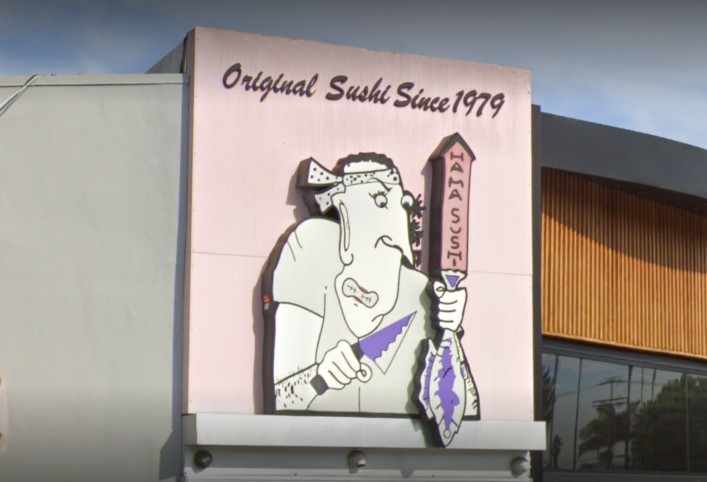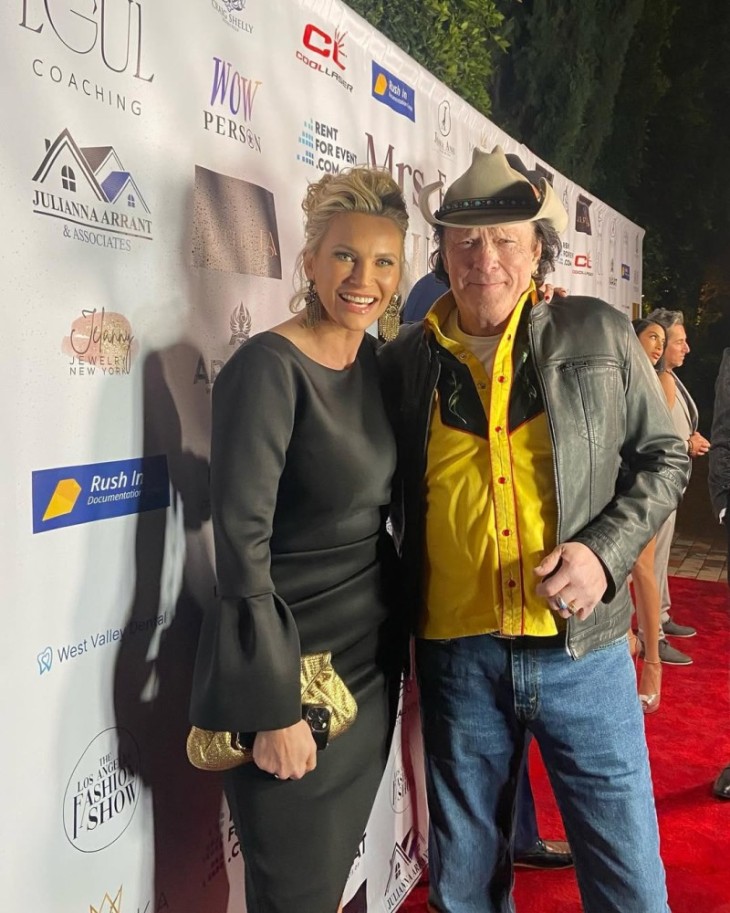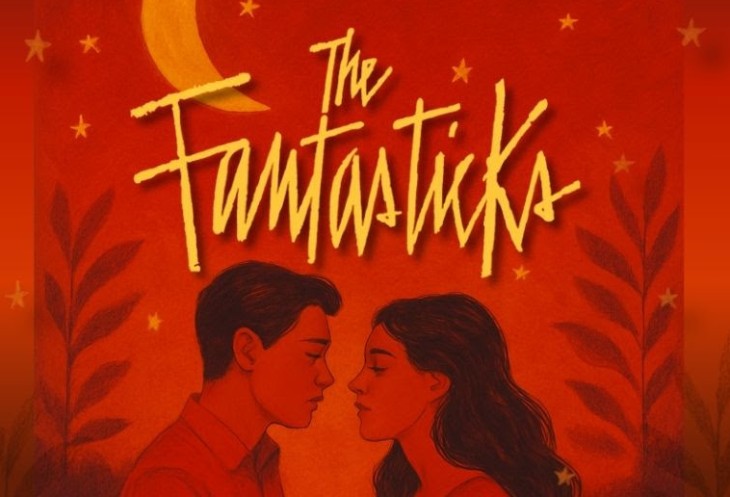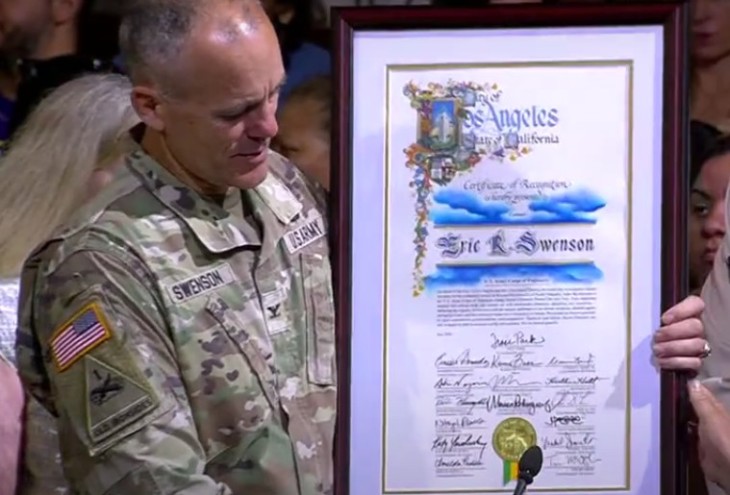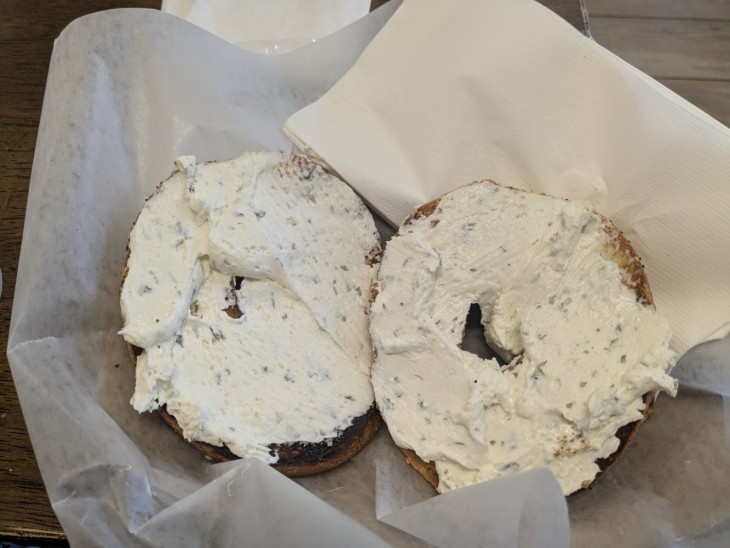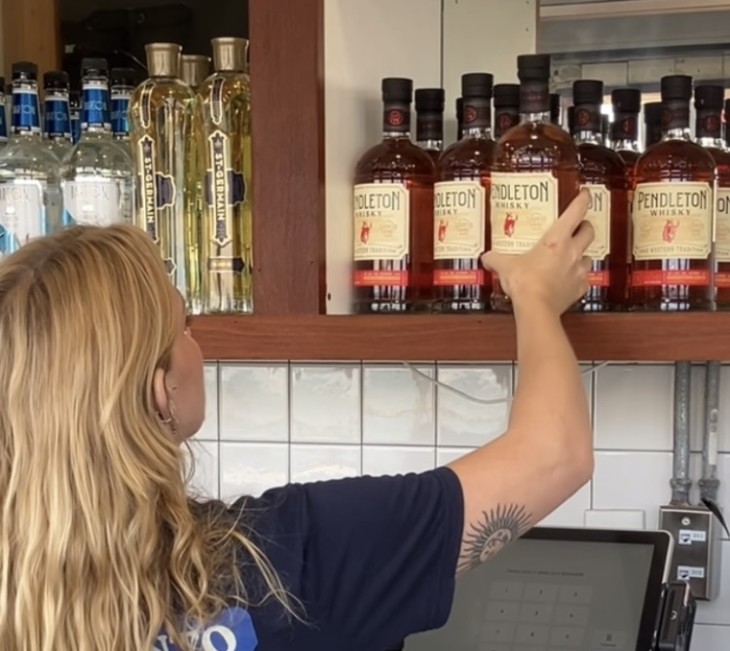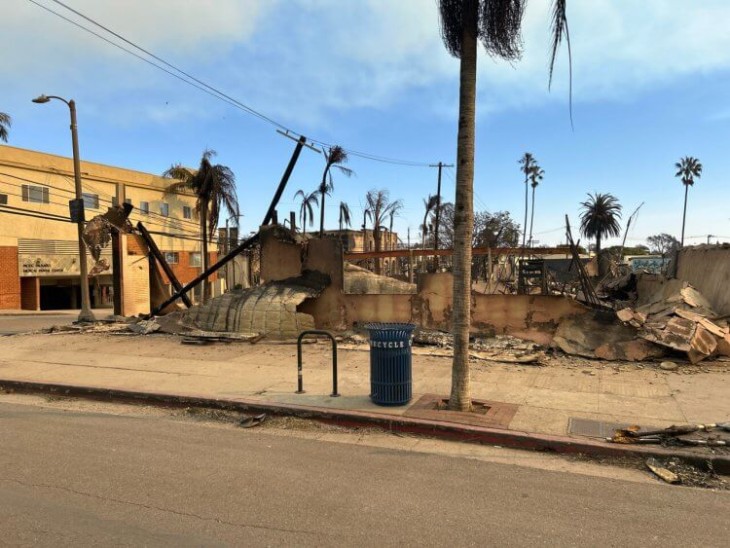Feted environmentalist James Balog has been a photographer for 30 years, leading the way in understanding and interpreting the natural environment. He founded the Extreme Ice Survey (EIS), the most comprehensive study of glaciers ever conducted, the results of which were published in the June 2007 and June 2010 editions of the “National Geographic.”
His documentation is now presented in a riveting, feature-length documentary called “Chasing Ice,” which is an unbiased visual accounting of the reality of global warming.
Filmmaker Jeff Orlowski founded Exposure, a film production company dedicated to producing socially relevant films. He initially worked with Balog on the EIS expedition, which eventually evolved into this most devastatingly beautiful chronicle of a planet headed for multiple environmental disasters.
Balog and Orlowski recently sat down with a group of select journalists to discuss this topic and the following has been edited for content and continuity for print purposes.
What motivated you make this spectacular film?
Balog: I’ve always been a great fan of Arctic and Alpine environments and thought they were incredibly wonderful, beautiful places. I became aware that the climate change story was manifested in the ice through a series of assignments in 2005 and 2006. I realized there was something that required putting cameras out there to try to see what happens on a regular basis, instead of just going back once a year.
The camera technology you needed was not available. What happened when you approached the various manufacturers?
Balog: They were really intrigued and I thought that these cameras could be easily engineered. I was incredibly naïve about that and very quickly learned that the techies at these camera companies said probably it will work, but really didn’t know. So, eventually it became a matter of just doing the experiment and finding out if it worked. It was nerve racking.
Orlowski: I think it’s somewhat understated in the film the degree to which James literally designed and invented a new camera system.
How did the two of you initially hook up and how did the project unfold?
Orlowski: I was familiar with James’ work and was a big fan. When I learned that he was doing this trip to Iceland, a mutual friend introduced us. I volunteered to shoot video and that was my opportunity to work with him. Then he invited me to go to Greenland and Alaska and it kept rolling from there. The first year-and-a half I was there to shoot videos but had no intention of making of a film. At that point, we had a couple hundred hours of footage and the time lapses were showing some very significant changes. It was then that I suggested we make a movie.
This is a great chronicle of what we’ve done to the planet. Can this be turned into positive action?
Balog: The easiest part of this work was going out in the field, but now we’re in the education and outreach phase to tell the story. I’ve presented to President Obama’s Energy and Climate Change staff on Capitol Hill and Jeff gave a screening and handed out DVDs to every senator and congressman’s office and through various staff members, we have had opportunities to put DVDs on President Obama’s desk. Hopefully this will help them understand the evidence and the immediacy and reality of climate change. Unfortunately, there’s only so much an individual person can do. The big stuff has to happen from the governmental level and needs to happen on a very large scale. We need to have regulations on how we burn fossil fuel. The public can use their voice to try to influence that and that change is going to happen either by the public demanding it, or when certain leadership recognizes that they have a responsibility to protect the public from evil they might not even know about.
Orlowski: Where we see the film having an influence is by shifting perception. We have the tools and technology to solve this issue. We want to do something about it so if people can use the film as a tool to help motivate others to care and prioritize this as a real issue, then we will see some difference.
Was there a time that you were frightened during this dangerous shoot?
Balog: It was more of a sort of a grinding, never-ending fear and it would often be at its worst the last couple of days before I was leaving home. It was in the packing phase that I would get really deeply anxious that this might be the last time – that I would not come back and see my daughters and wife again and that was a really hard thing to travel with – to close the backpacks, close the duffle bags, put them in the car, and get on an airplane.
With that fear, what drove you?
Balog: It was my duty and my responsibility. It was my privilege as a creative artist and my burden as a human being to recognize what was happening and I could not turn away from it.
Cameras are readily available to just about anyone, but what makes a National Geographic photographer such as you?
Balog: You have to have passion and you have to have obsession and you have to have the ability to work incredibly hard. You also have to have the desire to look under the surface of reality and extend your vision further. A lot of people who work professionally may have all of those first characteristics, but don’t necessarily have the drive to look under the surface of obvious appearances and inherited wisdom.
The moment you discovered the first round of cameras were not working was devastating. How did you get your second wind to keep moving forward?
Balog: The crushing thing about that moment in Alaska was that a week later I was going on a big expedition to Greenland and I didn’t know if those 12 cameras we were going to deploy were going to work. I hadn’t tested these cameras enough, so it was a number of weeks of anxiety until we got out in the field and started to discover where the problem was coming from. It was a while before this sense of anxiety and uncertainty started to dissipate, but we knew we still had a lot of uncertainty and it was another year or so before everything settled down and everything was working fine.
How will you shift perceptions people who refuse to believe in climate warming?
Balog: We’ll keep putting the story out there and keep telling the truth. I am idealistic enough to believe that the truth will eventually get assimilated into societal behavior because this is the correct thing to be paying attention to and eventually we will do the right thing. There’s a famous quote from Winston Churchill in 1940 or 1941 when Europe was already at war. The French and the English were trying to get us to enter that war and Churchill said that you can always count on the Americans to do the right thing, but only after they’ve exhausted all the other options. I heard another quote this morning on TV, which I’m paraphrasing. Lincoln said that just because the probability is that you might fail at a task, doesn’t mean that you shouldn’t try it. We know how the David and Goliath story turned out. David eventually wins. It may not be easy and it may be a high-risk thing, but I believe, because this is such a real and imminent danger, that this issue will prevail over skepticism.
For those skeptics, what are the advantages of dealing with this problem?
Balog: If we deal with climate change, it’s good for the country. We create new industries. We create new job possibilities, we create a healthier air supply for us to breathe and we can stabilize some of the geopolitical risks that are inherent in this. There’s lots of positives that come from addressing the excess burning of fossil fuels and treating that beautiful cerulean air supply out there as a garbage dump where for free, we can throw our refuse. We’ve been doing that for four million years and we can’t afford to do that anymore.
Do you feel optimistic that the planet will take action?
Balog: I can be depressed about this almost on a daily basis and for the sake of my sanity, and for the sake of my belief in my daughters’ futures, I can’t let myself go there. I’ve got a 24-year-old and an 11-year-old and want to offer them, in my own individual, solitary way, a better world and just refuse to fall into cynicism and despair.
Orlowski: I’ve been getting more and more optimistic over the last couple of weeks. Because of events like Sandy, climate change has become more of an issue. People are talking about it again and in the president’s acceptance speech, he acknowledged it. There is no way to avoid it and it’s just a matter of when it happens and how bad the damage will be until that point.
Balog: We’re all thinking Hurricane Sandy but it’s important to recognize that the current issue, in terms of the earth’s system overall, is that the pattern of extreme, violent events was predicted and recognized by the climate scientists decades ago. They were predicting that we’re going to see more extreme precipitation, whether it’s snow or rain, more violent storms, more droughts, more wild fire seasons that will be much more intense because the droughts make wild fires more possible. All of that is coming to pass and damage has already happened. Climate is changing and we’re seeing the consequences and getting whacked with disasters, forest fires, floods, tornadoes, and hurricanes and there is multi-billion dollar expenses connected with this. The idea carbon in the atmosphere would warm the air was put forward at the end of the 19th Century for God’s sake. This is not cutting edge stuff that some guy in an atomic physics lab in Berkeley just invented. This is over 100 years old.
How is climate change manifesting in the rest of the world?
Orlowski: There are island nations that have announced that they have to relocate their entire population of 100,000 people because they know they’re going under water. We know that hundreds of millions of people will have to relocate as a result of flooding homelands and we don’t need three feet of actual sea level rise to impact three feet of the coastline. We know just a couple of inches can have a huge impact because the storms are getting bigger.
Is the damage reversible?
Balog: It’s going to be a long process to stabilize it, but I think we could get many positive effects right now that will have positive effects in the future and a more positive environment. Not taking positive action, at a minimum, is selfish, immoral, and unethical and to the people of the future, it may actually appear to be criminal behavior.
Can you cite historic morality references?
Balog: Back in the early 19th Century, right up until 1861, people were saying we can’t stop the industry of slavery. Slaves were machines for manufacturing goods. That’s how it worked and there was a big sector of the country that was saying we can’t stop, you’re going to destroy us and they were willing to go to war over that. But, stopping slavery was the ethical and moral position and I don’t think any rational person would see it otherwise. One hundred years ago, 10-year-old kids worked in coalmines and textile factories and that was thought to be normal and necessary economic behavior. Up until I think 1928, women weren’t allowed to vote. These were fundamentals principles of the societies at that time. Women can’t vote. Kids can be used in labor. Slaves should be employed for economic value, but eventually you look back on it and think what was wrong with those people. Were they crazy?


